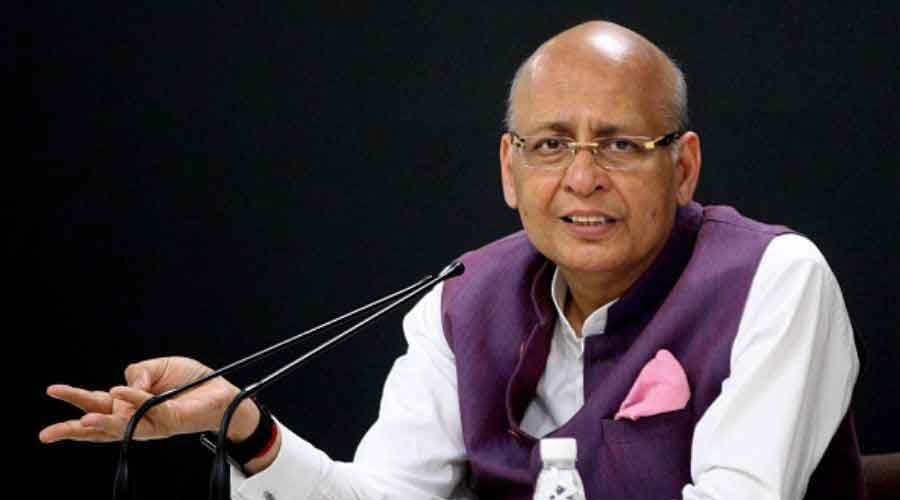The Congress on Monday said the ordinances allowing three consecutive one-year extensions to the CBI and Enforcement Directorate chiefs reflected not “public interest” but the government’s eagerness to facilitate misuse of these investigating agencies for “personal and political” interests.
Betraying its contempt for such criticism, the government on Monday issued a gazette notification that cited “public interest” to sanction up to two years’ extensions for holders of four other posts: defence secretary, home secretary, Intelligence Bureau director and Research and Analysis Wing secretary.
“The decision (to promulgate Sunday’s ordinances) was driven by the dangerous cocktail of greed and fear. There is no public interest. It is personal interest. It is the interest of the establishment,” Congress spokesperson Abhishek Singhvi said.
“The Prime Minister wants to control the agencies to protect secrets, to save friends and to torment the Opposition. They are creating security for themselves instead of creating security for the nation.”
The CBI and ED heads, who have two-year tenures, could till now hope for a year’s extension at best. Singhvi said the “crucial word” in the ordinances was “extension”.
“A guaranteed tenure of five years could possibly be touted as an index of independence, giving you security of tenure in which you can’t be touched. This ordinance does just the opposite. It gives the government the power to give one-year extensions till five years,” he said.
“This ordinance says, ‘I will keep you on probation, I will keep you on a leash, in a master-servant relationship. I will ask you every six months, nine months — look, your next extension is due. Have you behaved? Have you done the master’s bidding? If you have, I may consider an extension. If you haven’t, tough luck, go home’.”
Opposition parties have been accusing the Narendra Modi government of using investigative agencies like the CBI and the ED to intimidate or settle scores with them.
Officials said the ordinances would allow the Centre to bypass a Supreme Court order that forbade any further extension to ED chief Sanjay Mishra, a perceived government favourite who was to demit office on November 19 this year.
“They (the government) have used subterfuge, coercion and brute majority in Parliament to undermine all institutions. They have contemptuously rejected the Supreme Court’s directives,” Singhvi said.
“We beseech every stakeholder in this country and all authorities who care for the future of India not to take this lying down.”
Monday’s notification on two-year extensions for four posts — whose holders have two-year tenures — was issued by the department of personnel and training after amending the Fundamental Rules.
“The BJP is consistently, deliberately, consciously engaged in undermining and sabotaging institutions,” Singhvi said.
The Congress is expected to create an uproar over the ordinances in the upcoming session of Parliament but the government has the numbers to push them through in the form of bills.
The Congress hopes these decisions would have a negative political impact and the Supreme Court too might look at them unfavourably.
Singhvi said a campaign to have fixed tenures had started in 1997 and mentioned in this context how then CBI head Alok Verma was shunted out in a midnight operation in 2019, allegedly over suspicion that he meant to probe the Rafale aircraft deal.
“You know how much it was emphasised to ensure complete insulation of the office of the CBI director from all kinds of extraneous influences… so that the director may function without fear and favour,” Singhvi said.
He quoted the Supreme Court as saying, in reference to sections of the Delhi Special Police Establishment Act dealing with a CBI director’s appointment and tenure, that “the clear legislative intent in bringing the aforesaid provisions to the statute book are for the purpose of ensuring complete insulation of the office of the director, CBI, from all kinds of extraneous influences, as may be, as well as for upholding the integrity and independence of the institution of the CBI as a whole”.











